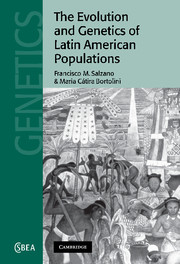Book contents
- Frontmatter
- Contents
- Preface
- 1 Origins
- 2 Environment and history
- 3 Socioeconomic indices, demography and population structure
- 4 Ecology, nutrition and physiologic adaptation
- 5 Morphology
- 6 Health and disease
- 7 Hemoglobin types and hemoglobinopathies
- 8 Normal genetic variation at the protein, glycoconjugate and DNA levels
- 9 Gene dynamics
- 10 Synthesis
- Appendix 1
- Appendix 2
- Appendix 3
- References
- Author Index
- Subject Index
7 - Hemoglobin types and hemoglobinopathies
Published online by Cambridge University Press: 23 March 2010
- Frontmatter
- Contents
- Preface
- 1 Origins
- 2 Environment and history
- 3 Socioeconomic indices, demography and population structure
- 4 Ecology, nutrition and physiologic adaptation
- 5 Morphology
- 6 Health and disease
- 7 Hemoglobin types and hemoglobinopathies
- 8 Normal genetic variation at the protein, glycoconjugate and DNA levels
- 9 Gene dynamics
- 10 Synthesis
- Appendix 1
- Appendix 2
- Appendix 3
- References
- Author Index
- Subject Index
Summary
Hemoglobin is probably the best analyzed genetic system in humans
Friedrich Vogel and Arno G. MotulskyHemoglobin disorders, which include sickle cell disorders and the thalassemias, are the commonest of human inherited diseases
World Health OrganizationA paradigmatic subject
Human hemoglobin is formed by four peptide (globin) chains. The formula which describes its molecule is, in adults, α2β2, indicating that the four chains comprise two identical pairs. These chains are differentially produced during ontogeny, so that they are diverse at the embryonic, fetal, and adult stages. Interest in the molecule arose due to its changes in a series of common clinical conditions which are caused by its structural variants (hemoglobinopathies) or defects of synthesis (thalassemias).
Table 7.1 presents some of the key events that led to a better understanding of the ways in which hemoglobin can vary and the resulting consequences. Investigation of these conditions was first limited to cytologic methods; later details of the protein sequences was obtained, culminating with studies at the DNA level. Presently several hundred structural and regulatory variants are known, due to changes in almost any step which leads from DNA to protein.
Hemoglobin is a paradigmatic subject for genetic research for two particular reasons. First, the difference in electrophoretic mobility between hemoglobin (Hb) A and Hb S (the one responsible for the sickling phenomenon) led Pauling et al. (1949) to the concept of molecular disease, that is, to pathologic conditions caused by specific changes in the protein molecule; today a wide array of diseases can be explained in this way. Second, the hemoglobin diseases are still the only undisputed examples of balancing selection in humans. Their peculiar world distribution suggested a possible selective advantage of heterozygotes in relation to malaria.
- Type
- Chapter
- Information
- The Evolution and Genetics of Latin American Populations , pp. 215 - 254Publisher: Cambridge University PressPrint publication year: 2001



